Biosketches

Jason Adelman, MD, MS
Chief Patient Safety Officer and Associate Chief Quality Officer
Columbia University Medical Center/New York-Presbyterian Hospital
 Dr. Adelman is the Chief Patient Safety Officer and Associate Chief Quality Officer at Columbia University Medical Center/NewYork-Presbyterian Hospital. After completing the AHA-NPSF Patient Safety Leadership Fellowship in 2011, he was selected to be a Senior Fellow of the Health Research and Educational Trust, the research arm of the American Hospital Association. Dr. Adelman is on the editorial board of the Journal for Healthcare Quality, and is a member of the New York State Department of Health’s Quality and Patient Safety Advisory Committee. In 2013 Dr. Adelman was named one of “50 Experts Leading the Field of Patient Safety” by Becker’s Hospital Review.
Dr. Adelman is the Chief Patient Safety Officer and Associate Chief Quality Officer at Columbia University Medical Center/NewYork-Presbyterian Hospital. After completing the AHA-NPSF Patient Safety Leadership Fellowship in 2011, he was selected to be a Senior Fellow of the Health Research and Educational Trust, the research arm of the American Hospital Association. Dr. Adelman is on the editorial board of the Journal for Healthcare Quality, and is a member of the New York State Department of Health’s Quality and Patient Safety Advisory Committee. In 2013 Dr. Adelman was named one of “50 Experts Leading the Field of Patient Safety” by Becker’s Hospital Review.
Sharon B. Arnold, PhD
Deputy Director
Agency for Healthcare Research and Quality
 Dr. Arnold helps lead the Agency’s efforts to develop the knowledge, tools, and data needed to improve the health care system and help Americans, health care professionals, and policymakers make informed health decisions. Prior to her work at the Agency for Healthcare Research and Quality (AHRQ), Dr. Arnold directed the Payment Policy and Financial Management Group at the Centers for Medicare & Medicaid Services (CMS), where she led work related to program payments and developed the premium stabilization programs for private insurance under the Affordable Care Act.
Dr. Arnold helps lead the Agency’s efforts to develop the knowledge, tools, and data needed to improve the health care system and help Americans, health care professionals, and policymakers make informed health decisions. Prior to her work at the Agency for Healthcare Research and Quality (AHRQ), Dr. Arnold directed the Payment Policy and Financial Management Group at the Centers for Medicare & Medicaid Services (CMS), where she led work related to program payments and developed the premium stabilization programs for private insurance under the Affordable Care Act.
Dr. Arnold has held a number of other positions in health policy, including Vice President at AcademyHealth, where she directed a Robert Wood Johnson Foundation grant program, Changes in Health Care Financing and Organization, which provided funding to academic researchers for policy-relevant research on health care financing topics; Director of the Program Development and Information Group at CMS, where she directed Medicare payment demonstrations and the implementation of risk adjustment in Medicare; and Director of Medicare Part A Analysis, where she led legislative policy for Medicare Part A issues.
Dr. Arnold previously worked at the Prospective Payment Assessment Commission, Mathematica Policy Research, and RAND. She received her PhD degree in policy analysis from the RAND Graduate School and her MSPH degree from the University of California, Los Angeles School of Public Health. In "Working With Our HHS Family," AHRQ Deputy Director Sharon Arnold explains how AHRQ fits into the U.S. Department of Health and Human Services’ (HHS) operating divisions.
Andrew B. Bindman, MD
Director
Agency for Healthcare Research and Quality
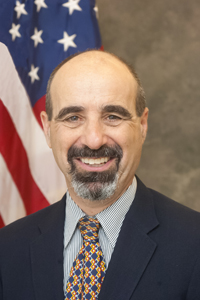 Dr. Bindman was appointed Director of AHRQ on May 2, 2016. Prior to his appointment, he served as Professor of Medicine and Epidemiology and Biostatistics at the University of California, San Francisco (UCSF). He is a primary care physician with Federal and State health policy experience who has practiced, taught, and conducted health services research at San Francisco General Hospital, an urban safety-net hospital, for almost 30 years. During that time, he led the development of a nationally recognized academic division focused on improving the care of vulnerable populations and a State-university partnership with California’s Medicaid program that promotes translating research into policy.
Dr. Bindman was appointed Director of AHRQ on May 2, 2016. Prior to his appointment, he served as Professor of Medicine and Epidemiology and Biostatistics at the University of California, San Francisco (UCSF). He is a primary care physician with Federal and State health policy experience who has practiced, taught, and conducted health services research at San Francisco General Hospital, an urban safety-net hospital, for almost 30 years. During that time, he led the development of a nationally recognized academic division focused on improving the care of vulnerable populations and a State-university partnership with California’s Medicaid program that promotes translating research into policy.
Dr. Bindman has published more than 150 peer-reviewed scientific articles focused on primary care and on low-income individuals’ access to and quality of care. Through his work, Dr. Bindman helped to establish the association between access to care and preventable hospitalizations for ambulatory care-sensitive conditions (what are now called Prevention Quality Indicators [PQIs]). Dr. Bindman has used PQIs to evaluate Medicaid programs and to design interventions to improve quality of care for low-income patients with chronic disease. He has also promoted a participatory research model with policymakers as a way to translate research into evidence-based policy. Dr. Bindman is a Senior Associate Editor of the journal Health Services Research and was elected to the National Academy of Medicine in 2015.
At UCSF, Dr. Bindman contributed to the training of primary care physicians and the development of health services researchers. He has been the Director of UCSF’s Primary Care Research Fellowship, the developer of a course on translating research into policy, and a co-editor of the textbook Medical Management of Vulnerable and Underserved Populations. In 2005, Dr. Bindman received an achievement award from the Health Resources and Services Administration in recognition of his contributions to research training in health care disparities and in improving the diversity of the Nation’s health care workforce. He served on AHRQ’s Health Care Research Training Study Section from 2005 to 2009. In 2009-2010, Dr. Bindman was a Robert Wood Johnson Health Policy Fellow who worked as a staff member on the Energy and Commerce Committee in the U.S. House of Representatives. From September 2011 until June 30, 2014, Dr. Bindman served as a senior advisor within the Assistant Secretary for Planning and Evaluation’s Office of Health Policy, and from July 2014 until November 2015, Dr. Bindman was a senior advisor to the Centers for Medicare & Medicaid Services, where he helped launch the Innovation Accelerator Program to support care transformation in State Medicaid programs.
Rear Admiral Jeffrey Brady, MD, MPH
Director
AHRQ Center for Quality Improvement and Patient Safety
U.S. Public Health Service
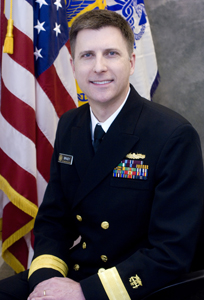 Dr. Brady has served as the Director of AHRQ’s Center for Quality Improvement and Patient Safety (CQUIPS) since 2014. He led the AHRQ Patient Safety Research Program from 2009 to 2014 and, in a prior position at AHRQ, led the team that produces the National Healthcare Quality and Disparities Report, an annual report to Congress on the status of health care quality in the United States.
Dr. Brady has served as the Director of AHRQ’s Center for Quality Improvement and Patient Safety (CQUIPS) since 2014. He led the AHRQ Patient Safety Research Program from 2009 to 2014 and, in a prior position at AHRQ, led the team that produces the National Healthcare Quality and Disparities Report, an annual report to Congress on the status of health care quality in the United States.
Before arriving at AHRQ in December 2006, Dr. Brady served as a medical officer and clinical reviewer for the U.S. Food and Drug Administration's Office of Vaccines. Additionally, he has held positions as a medical epidemiologist for the U.S. Department of Defense and primary care physician in the U.S. Navy.
Dr. Brady attended the Medical College of Georgia, completed internship training in internal medicine at the Naval Medical Center in San Diego, and earned a master’s degree in public health from the Uniformed Services University of the Health Sciences (USU) in Bethesda, Maryland. He completed the Navy's General Preventive Medicine Residency, also at USU, and is board certified in public health and general preventive medicine.
Pascale Carayon, PhD
Procter & Gamble Bascom Professor in Total Quality
Department of Industrial and Systems Engineering
Director
Center for Quality and Productivity Improvement
University of Wisconsin-Madison
 Dr. Carayon is Procter & Gamble Bascom Professor in Total Quality in the Department of Industrial and Systems Engineering and the Director of the Center for Quality and Productivity Improvement at the University of Wisconsin-Madison. She leads the Systems Engineering Initiative for Patient Safety (SEIPS) at the University of Wisconsin-Madison. Dr. Carayon received her engineering diploma from the Ecole Centrale de Paris, France, in 1984 and her PhD degree in industrial engineering from the University of Wisconsin-Madison in 1988.
Dr. Carayon is Procter & Gamble Bascom Professor in Total Quality in the Department of Industrial and Systems Engineering and the Director of the Center for Quality and Productivity Improvement at the University of Wisconsin-Madison. She leads the Systems Engineering Initiative for Patient Safety (SEIPS) at the University of Wisconsin-Madison. Dr. Carayon received her engineering diploma from the Ecole Centrale de Paris, France, in 1984 and her PhD degree in industrial engineering from the University of Wisconsin-Madison in 1988.
Dr. Carayon’s research belongs to the discipline of human factors engineering, in particular macroergonomics. Her scholarly contributions focused on modeling, assessing, and, improving work systems (i.e., the system of tasks performed by individuals using various technologies in a physical and organizational environment) in order to improve system performance and worker well-being. She has developed human factors and systems engineering methods and the SEIPS model to improve patient safety and health information technologies in complex health care settings. Dr. Carayon’s research has been funded by the AHRQ, the National Science Foundation, the National Institutes of Health, various foundations, and private industry. She is a Fellow of the Human Factors and Ergonomics Society and a Fellow of the International Ergonomics Association.
In 2015 and 2016, Becker’s Hospital Review named her one of 50 experts leading the field of patient safety. In 2015, she received the A.R. Lauer Safety Award from the Human Factors and Ergonomics Society for contributions to the human factors of patient safety. In 2016, she received the John M. Eisenberg patient safety and quality award for individual achievement from the National Quality Forum and the Joint Commission. Dr. Carayon has written more than 130 journal publications. She is the editor of the Handbook of Human Factors and Ergonomics in Health Care and Patient Safety. She was a member of the IOM Committee on Diagnostic Error in Healthcare.
Chris Dymek, EdD
Director, Health IT Division
Agency for Healthcare Research and Quality
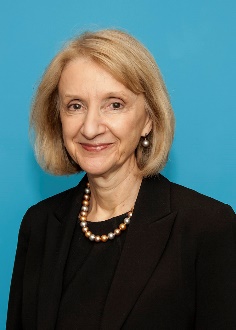 Dr. Dymek leads the work of the Division of Health Information Technology (IT) within AHRQ’s Center for Evidence and Practice Improvement. She is a computer scientist and health IT researcher who is dedicated to advancing the productive use of information technologies within health care.
Dr. Dymek leads the work of the Division of Health Information Technology (IT) within AHRQ’s Center for Evidence and Practice Improvement. She is a computer scientist and health IT researcher who is dedicated to advancing the productive use of information technologies within health care.
Prior to joining AHRQ, Dr. Dymek was a program manager in the HHS Office of the Assistant Secretary for Planning and Evaluation, where she led the HHS effort, supported by the Patient-Centered Outcomes Research Trust Fund, to build data capacity for patient-centered outcomes research. She has also held senior researcher positions within the Westat Center for Health IT and the National Opinion Research Center (NORC) at the University of Chicago. Preceding her work at Westat and NORC, she led an electronic medical record implementation for five Adventist health care facilities. She also served as Chief Technology Officer and Product Development Executive at the Commission on Accreditation of Rehabilitation Facilities.
In addition to her work in the health and human services sector, Dr. Dymek has directed large scale-IT implementations as well as reengineering and organization effectiveness efforts for the electric utility industry.
Victor Dzau, MD
President
National Academy of Medicine
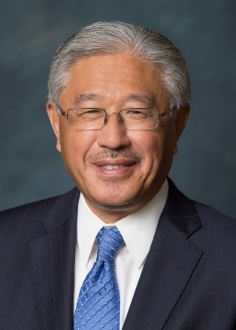 Dr. Dzau is the President of the National Academy of Medicine (NAM), formerly the Institute of Medicine (IOM). In addition, he serves as Chair of the Health and Medicine Division Committee of the National Academies of Sciences, Engineering, and Medicine, and Vice Chair of the National Research Council. Dr. Dzau is Chancellor Emeritus and James B. Duke Professor of Medicine at Duke University and the past President and CEO of the Duke University Health System. Previously, Dr. Dzau was the Hersey Professor of Theory and Practice of Medicine and Chairman of Medicine at Harvard Medical School’s Brigham and Women’s Hospital as well as Chairman of the Department of Medicine at Stanford University.
Dr. Dzau is the President of the National Academy of Medicine (NAM), formerly the Institute of Medicine (IOM). In addition, he serves as Chair of the Health and Medicine Division Committee of the National Academies of Sciences, Engineering, and Medicine, and Vice Chair of the National Research Council. Dr. Dzau is Chancellor Emeritus and James B. Duke Professor of Medicine at Duke University and the past President and CEO of the Duke University Health System. Previously, Dr. Dzau was the Hersey Professor of Theory and Practice of Medicine and Chairman of Medicine at Harvard Medical School’s Brigham and Women’s Hospital as well as Chairman of the Department of Medicine at Stanford University.
Dr. Dzau has made a significant impact on medicine through his seminal research in cardiovascular medicine and genetics and his leadership in health care innovation. His important work on the renin angiotensin system (RAS) paved the way for the contemporary understanding of RAS in cardiovascular disease and the development of RAS inhibitors as widely used, lifesaving drugs. In his role as a leader in health care, Dr. Dzau has led efforts in innovation to improve health, including the development of the Duke Translational Medicine Institute, the Duke Global Health Institute, the Duke-National University of Singapore Graduate Medical School, and the Duke Institute for Health Innovation.
As one of the world’s preeminent health leaders, Dr. Dzau advises governments, corporations, and universities worldwide. He has served as a member of the Advisory Committee to the Director of the National Institutes of Health (NIH) and as Chair of the NIH Cardiovascular Disease Advisory Committee. Currently, he is a member of the Board of the Singapore Health System and Hamad Medical Corporation, Qatar. He was on the Board of Health Governors of the World Economic Forum and chaired its Global Agenda Council on Personalized and Precision Medicine.
Paul L. Epner, MBA, MEd
Executive Vice President
Society to Improve Diagnosis in Medicine
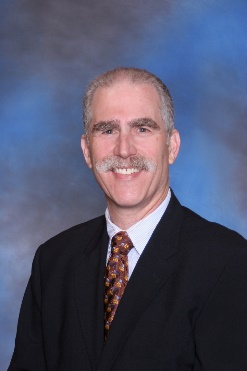 Mr. Epner is the Executive Vice President of the Society to Improve Diagnosis in Medicine (SIDM), a nonprofit organization that seeks to improve patient safety by ensuring that diagnoses are made in an accurate, timely, and efficient manner. He is also the co-founder and a Director for SIDM as well as the Chair of the Coalition to Improve Diagnosis, a multi-organization collaboration.
Mr. Epner is the Executive Vice President of the Society to Improve Diagnosis in Medicine (SIDM), a nonprofit organization that seeks to improve patient safety by ensuring that diagnoses are made in an accurate, timely, and efficient manner. He is also the co-founder and a Director for SIDM as well as the Chair of the Coalition to Improve Diagnosis, a multi-organization collaboration.
Mr. Epner serves as Immediate Past President of the Clinical Laboratory Management Association, where he also leads the Increasing Clinical Effectiveness initiative. He is a member of the CDC’s “Clinical Laboratory Integration into Healthcare Collaborative™” known as CLIHC, a consultant for the past 7 years to their Laboratory Medicine Best Practices program (an evidence-based practice initiative), and Chair of the Coordinating Council on the Clinical Laboratory Workforce’s Taskforce on Measuring Testing-Related Value. Mr. Epner is also an Associate Editor of the journal DIAGNOSIS.
Christine Goeschel, ScD, MPA, MPS, RN
Assistant Vice President, Quality
MedStar Health
 Dr. Goeschel is the Assistant Vice President for Quality at MedStar Health. In this role, she oversees quality improvement for both acute and non-acute care. In addition, she holds an associate faculty position in the Master of Hospital Administration program at the Johns Hopkins Bloomberg School of Public Health. Previously, Dr. Goeschel held a primary faculty appointment in the School of Medicine at Johns Hopkins. She was also Director of Strategic Research Initiatives at the Hopkins Armstrong Institute, where she served as co-director of the AHRQ ACTION II research network.
Dr. Goeschel is the Assistant Vice President for Quality at MedStar Health. In this role, she oversees quality improvement for both acute and non-acute care. In addition, she holds an associate faculty position in the Master of Hospital Administration program at the Johns Hopkins Bloomberg School of Public Health. Previously, Dr. Goeschel held a primary faculty appointment in the School of Medicine at Johns Hopkins. She was also Director of Strategic Research Initiatives at the Hopkins Armstrong Institute, where she served as co-director of the AHRQ ACTION II research network.
Dr. Goeschel has significant and diverse health care leadership experience as a critical care nurse, a hospital executive, an implementation scientist, and developer and first executive for the Keystone Center for Patient Safety and Quality at the Michigan Health and Hospital Association. She has led groundbreaking efforts to reduce bloodstream infections in intensive care units in Michigan, and she has contributed to large-scale health care improvement projects in Spain, England, and Peru and to an AHRQ-funded initiative to reduce bloodstream infections in the United States and Puerto Rico. Dr. Goeschel speaks frequently at national and international forums on the topics of improvements to the science of health care delivery and leadership accountability for quality and patient safety.
She is a fellow of the American Academy of Nursing and a member of the board of directors of the Maryland Patient Safety Center. In addition, she was selected as an examiner for the Baldrige Performance Excellence Program of the National Institute of Standards and Technology. She has served on the National Quality Forum (NQF) national steering committee for hospital-associated conditions, and she currently serves on an NQF expert panel examining linkages between cost and quality of care. Dr. Goeschel was recently appointed to an Institute of Medicine committee focused on diagnostic errors in health care. She holds an appointment as Honorary Visiting Fellow in the Department of Health Sciences, University of Leicester, United Kingdom, where she has served as a consultant on several improvement projects. She also serves as a senior advisor on the World Health Organization Patient Safety Program.
Mark L. Graber, MD, FACP
Senior Fellow
RTI International
Professor Emeritus of Medicine
State University of New York at Stony Brook
President
Society to Improve Diagnosis in Medicine
 Dr. Graber is an internist and physician leader and has worked in the VA health care system for 35 years. He is a Senior Fellow at RTI International, Professor Emeritus of Medicine at the State University of New York at Stony Brook, and President of the Society to Improve Diagnosis in Medicine.
Dr. Graber is an internist and physician leader and has worked in the VA health care system for 35 years. He is a Senior Fellow at RTI International, Professor Emeritus of Medicine at the State University of New York at Stony Brook, and President of the Society to Improve Diagnosis in Medicine.
Dr. Graber is a national leader in the field of patient safety (recently recognized by Becker’s Health Review "Top 50" list) and originated Patient Safety Awareness Week in 2002, an event now recognized internationally. He is also a pioneer in efforts to address diagnostic errors in medicine. In 2008 he originated the Diagnostic Error in Medicine conference series, in 2011 he founded the Society to Improve Diagnosis in Medicine (www.improvediagnosis.org), and in 2014 he launched a new journal, DIAGNOSIS, devoted to improving the quality and safety of diagnosis and reducing diagnostic error.
Dr. Graber received the 2014 John M Eisenberg Award from The Joint Commission and the National Quality Forum, recognizing individual achievement advancing patient safety. Dr. Graber has a longstanding interest in health care informatics. He was a “champion” of the electronic medical record installation at his hospital, has served on local, regional, and national committees focused on improving health IT resources, and most recently co-authored a series of evidence-based briefs for the Office of the National Coordinator on health IT safety.
Michael I. Harrison, PhD
Senior Social Scientist
Center for Delivery, Organization, and Markets
Agency for Healthcare Research and Quality
 Dr. Harrison is a Senior Social Scientist in AHRQ’s Center for Delivery, Organization, and Markets (CDOM). Within CDOM he leads research on organization and delivery system change. During his 13 years at AHRQ he has led projects on implementation and dissemination of system improvements, applications of Lean-Toyota Production System to health care, high-performance management practices, organizational transformation, and health information technology. Through monthly email updates and informal meetings he facilitates dialogue across the Agency on delivery system research and change.
Dr. Harrison is a Senior Social Scientist in AHRQ’s Center for Delivery, Organization, and Markets (CDOM). Within CDOM he leads research on organization and delivery system change. During his 13 years at AHRQ he has led projects on implementation and dissemination of system improvements, applications of Lean-Toyota Production System to health care, high-performance management practices, organizational transformation, and health information technology. Through monthly email updates and informal meetings he facilitates dialogue across the Agency on delivery system research and change.
His publications include papers in leading health services research journals, two books on organizational diagnosis and assessment, and Implementing Change in Health Systems: Market Reforms in the United Kingdom, Sweden, and The Netherlands (Sage, 2004). Dr. Harrison holds a PhD degree in sociology from the University of Michigan. He was previously a faculty member at SUNY, Stony Brook, and at Bar Ilan University in Israel; a visiting professor at Boston College and Haifa University; and a visiting scholar at Brandeis University, Georgetown University, Harvard Business School, and the Nordic School of Public Health.
Helen Haskell, MA
President
Mothers Against Medical Error and Consumers Advancing Patient Safety
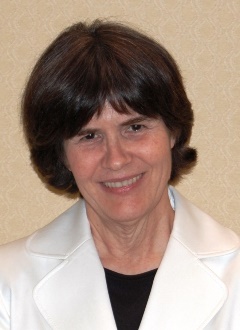 Ms. Haskell is president of the nonprofit patient organizations Mothers Against Medical Error and Consumers Advancing Patient Safety. Since the medical error death of her young son Lewis in 2000, Ms. Haskell has devoted herself to advocacy for health care safety and quality in a variety of fields, including patient engagement, response to adverse events, diagnostic error reduction, rapid response, and infection prevention, among others.
Ms. Haskell is president of the nonprofit patient organizations Mothers Against Medical Error and Consumers Advancing Patient Safety. Since the medical error death of her young son Lewis in 2000, Ms. Haskell has devoted herself to advocacy for health care safety and quality in a variety of fields, including patient engagement, response to adverse events, diagnostic error reduction, rapid response, and infection prevention, among others.
She serves on boards and committees for a number of national and international organizations, including the boards of directors of the Institute for Healthcare Improvement, the National Patient Safety Foundation, the Accreditation Council for Graduate Medical Education, and the International Society for Rapid Response Systems. She is a former member of the AHRQ National Advisory Council. Ms. Haskell is author and co-author of numerous articles and patient educational materials on patient safety and quality, including a recent co-edited textbook on using patient narrative to teach interprofessional competencies. Her son Lewis’s story has been featured in educational programs and videos including Transparent Health’s The Lewis Blackman Story, shown in hospitals and medical and nursing schools across the country. Ms. Haskell holds a BA degree in classical studies from Duke University and an MA degree in anthropology from Rice University.
Kerm Henriksen, PhD
Senior Advisor, Human Factors and Patient Safety
Agency for Healthcare Research and Quality
 Dr. Henriksen is an experimental psychologist by academic training, and currently serves as Senior Advisor, Human Factors and Patient Safety at AHRQ. In addition to directing the Agency’s Patient Safety Research Coordinating Center, a central hub and repository for managing a diverse portfolio of grants, he has led new program initiatives for funding research in health care simulation, improving diagnostic performance, and systems engineering approaches to patient safety. He also served as associate editor to the Journal of Patient Safety, lead editor of two AHRQ four-volume publications, Advances in Patient Safety: From Research to Implementation and Advances in Patient Safety: New Directions and Alternative Approaches, and guest editor on two BMJ Safety and Quality supplements on human factors and simulation and training.
Dr. Henriksen is an experimental psychologist by academic training, and currently serves as Senior Advisor, Human Factors and Patient Safety at AHRQ. In addition to directing the Agency’s Patient Safety Research Coordinating Center, a central hub and repository for managing a diverse portfolio of grants, he has led new program initiatives for funding research in health care simulation, improving diagnostic performance, and systems engineering approaches to patient safety. He also served as associate editor to the Journal of Patient Safety, lead editor of two AHRQ four-volume publications, Advances in Patient Safety: From Research to Implementation and Advances in Patient Safety: New Directions and Alternative Approaches, and guest editor on two BMJ Safety and Quality supplements on human factors and simulation and training.
Prior to joining AHRQ, Dr. Henriksen held principal research scientist positions in defense-related aerospace firms, specializing in behavioral science research, human factors, systems engineering, simulation and training, and human performance concerns, and also served as Adjunct Professor with the Graduate School of Management and Technology at the University of Maryland, University College.
David R. Hunt, MD
Medical Director for Patient Safety and Health IT Adoption
Office of Clinical Quality and Safety
Office of the National Coordinator for Health Information Technology
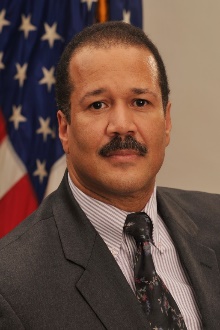 Dr. Hunt joined the Office of the National Coordinator for Health Information Technology (ONC) in October 2007. He currently serves as the Medical Director for Patient Safety and Health IT Adoption in the Office of Clinical Quality and Safety. There he focuses on coordinating the ONC Health IT safety program and strengthening the policy and operational aspects of ONC programs for health IT adoption and implementation. Often working in the role of liaison to the medical community, Dr. Hunt works to ensure that the policies, programs, and priorities for patient safety at ONC remain relevant to practicing clinicians. With regard to health IT adoption, implementation, and safety, his work often entails conveying the value proposition of information technology to the clinical community, while voicing the concerns and interest of practicing professionals within ONC. One particular focus of his work is the role of health IT in reducing health disparities.
Dr. Hunt joined the Office of the National Coordinator for Health Information Technology (ONC) in October 2007. He currently serves as the Medical Director for Patient Safety and Health IT Adoption in the Office of Clinical Quality and Safety. There he focuses on coordinating the ONC Health IT safety program and strengthening the policy and operational aspects of ONC programs for health IT adoption and implementation. Often working in the role of liaison to the medical community, Dr. Hunt works to ensure that the policies, programs, and priorities for patient safety at ONC remain relevant to practicing clinicians. With regard to health IT adoption, implementation, and safety, his work often entails conveying the value proposition of information technology to the clinical community, while voicing the concerns and interest of practicing professionals within ONC. One particular focus of his work is the role of health IT in reducing health disparities.
At ONC, Dr. Hunt merges years as a practicing surgeon and leader in surgical quality and patient safety with hands-on experience at all levels of information technology from programmer to systems analyst and software developer. Prior to joining ONC, from 2002 through 2007, he served at the Centers for Medicare & Medicaid Services (CMS) in Baltimore. There he led the measure development, design, testing, and implementation of the Surgical Care Improvement Project (SCIP), at that time the most extensive surgical quality and safety program in the United States. During that same period Dr. Hunt also ran the Medicare Patient Safety Monitoring System, a nationwide surveillance project aimed at identifying the rates of specific adverse events within the Medicare population. As a result of his leadership in those programs, he has served on the Safe Practices Consensus Committee of the National Quality Forum.
Dr. Hunt, a native of Baltimore, Maryland, attended public schools, graduating from the Baltimore Polytechnic Institute. After receiving a bachelor’s degree in biochemistry from the University of Rochester (New York) he attended Howard University College of Medicine, graduating with a medical degree in 1984. Dr. Hunt, who also completed his residency in surgery at Howard University, became a diplomate of the American Board of Surgery in 1991. Practicing in both private and academic settings, Dr. Hunt served as a Clinical Assistant Professor of Surgery at Howard University and Chair of Surgical Peer Review at various hospitals in the Washington metropolitan area, and has been a Fellow of the American College of Surgeons since 1993.
Shari M. Ling, MD
Deputy Chief Medical Officer
Center for Clinical Standards and Quality
Centers for Medicare & Medicaid Services
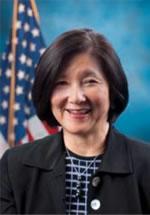 Dr. Shari M. Ling is currently the Centers for Medicare & Medicaid Services (CMS), Deputy Chief Medical Officer serving in the Center for Clinical Standards and Quality (CCSQ). She is responsible for assisting the CMS Chief Medical Officer in the Agency's pursuit of higher quality health care, healthier populations, and lower cost through quality improvement. Dr. Ling’s long-standing focus is on the achievement of meaningful health outcomes through delivery of high-quality, beneficiary-centered care across all care settings. She has a special interest in the care of persons with multiple chronic conditions and functional limitations, as well as reducing health disparities.
Dr. Shari M. Ling is currently the Centers for Medicare & Medicaid Services (CMS), Deputy Chief Medical Officer serving in the Center for Clinical Standards and Quality (CCSQ). She is responsible for assisting the CMS Chief Medical Officer in the Agency's pursuit of higher quality health care, healthier populations, and lower cost through quality improvement. Dr. Ling’s long-standing focus is on the achievement of meaningful health outcomes through delivery of high-quality, beneficiary-centered care across all care settings. She has a special interest in the care of persons with multiple chronic conditions and functional limitations, as well as reducing health disparities.
Dr. Ling has served as the lead coordinator and facilitator of the CCSQ Measures Forum. Dr. Ling represents CMS on the Health and Human Services (HHS) Multiple Chronic Conditions Workgroup, and the National Quality Forum Measures Application Partnership Post-acute Care/Long-term Care Workgroup, and chairs the measures and data sources sub-workgroup for the HHS Action Plan for Healthcare Associated Infection (HAI) Prevention in Long-term Care Facilities. Dr. Ling also serves as the clinical sub-group lead for the HHS National Alzheimer's Project Act.
Dr. Ling is a geriatrician and rheumatologist who received her medical training at Georgetown University School of Medicine. Dr. Ling received her clinical training in internal medicine and rheumatology at Georgetown University Medical Center and completed geriatric medicine studies at Johns Hopkins University. After that, she joined the Intramural Research Program of the National Institutes of Health at the National Institute on Aging as a staff clinician for 8 years, studying human aging and age-associated chronic diseases with a focus on musculoskeletal conditions and mobility function.
Dr. Ling continues to serve as a part-time faculty member in the Division of Geriatric Medicine and Gerontology at Johns Hopkins University School of Medicine, and in the Division of Rheumatology, Allergy, and Clinical Immunology at the University of Maryland. Dr. Ling volunteers at the Veterans Administration Medical Center in Baltimore. She is a Gerontologist who received her training in Direct Service from the Ethel Percy Andrus Gerontology Center, at the University of Southern California, and served as the co-director of the Andrus Older Adult Counseling Center.
Kathryn McDonald, MM/MBA
Executive Director
Center for Health Policy and the Center for Primary Care and Outcomes Research
Stanford University
 Ms. McDonald is the executive director of CHP/PCOR and a senior scholar at the centers. She is also associate director of the Stanford-UCSF Evidence-based Practice Center (under RAND). Her work focuses on measures and interventions to achieve evidence-based patient-centered health care quality and patient safety.
Ms. McDonald is the executive director of CHP/PCOR and a senior scholar at the centers. She is also associate director of the Stanford-UCSF Evidence-based Practice Center (under RAND). Her work focuses on measures and interventions to achieve evidence-based patient-centered health care quality and patient safety.
Ms. McDonald has served as a project director and principal investigator on a number of research projects at the Stanford School of Medicine, including the development and ongoing enhancement of the Quality and Patient Safety Indicators for the Agency for Healthcare Research and Quality. She has authored numerous peer-reviewed articles and government reports, including several that merited recent updates: Care Coordination Measures Atlas, Closing the Quality Gap, and Patient Safety Practices. She served on the Institute of Medicine (IOM) Committee that produced Measuring What Matters: Pediatric and Adolescent Health and Health Care, and currently is part of the IOM Committee on Diagnostic Errors in Health Care.
Previously, Ms. McDonald worked as a manager for technology optimization and business development at Stanford Hospital, and as a research and development manager for new product development for a medical device company. She received a master of management degree (MBA and MHA equivalent) from Northwestern University's Kellogg School of Management, with an emphasis on the healt h care industry, and she holds a BS degree in chemical engineering from Stanford University.
David Newman-Toker, MD, PhD
Associate Professor of Neurology and Otolaryngology
Ophthalmology, Emergency Medicine, and Health Sciences Informatics
Johns Hopkins University School of Medicine
Epidemiology and Health Policy and Management
Johns Hopkins Bloomberg School of Public Health
 Dr. Newman-Toker is Associate Professor of Neurology and Otolaryngology. He holds joint appointments in Ophthalmology, Emergency Medicine, and Health Sciences Informatics at the Johns Hopkins University School of Medicine, as well as in Epidemiology and Health Policy and Management at the Johns Hopkins Bloomberg School of Public Health.
Dr. Newman-Toker is Associate Professor of Neurology and Otolaryngology. He holds joint appointments in Ophthalmology, Emergency Medicine, and Health Sciences Informatics at the Johns Hopkins University School of Medicine, as well as in Epidemiology and Health Policy and Management at the Johns Hopkins Bloomberg School of Public Health.
Dr. Newman-Toker’s academic mission is to eliminate harms from diagnostic errors and maximize the accuracy and efficiency of diagnostic testing in clinical practice. He serves as a Core Faculty member of the Armstrong Institute for Patient Safety and Quality, where he leads institutional initiatives related to diagnostic safety, quality, and value.
Dr. Newman-Toker’s research focuses on preventing missed strokes in the emergency department and primary care, especially among patients presenting with acute, severe vertigo or dizziness. He and his collaborators have developed innovative methods to diagnose stroke through careful bedside examination of eye movements. He is now translating these innovations into clinical practice through the use of novel technologies at the point of care.
Dr. Newman-Toker's clinical expertise is in disorders of the brainstem and cranial nerves, including visual loss, double vision, and vertigo. He serves as Director of the Neuro-Visual and Vestibular Division. His clinical practice focuses on emergency evaluation of patients with acute vertigo and dizziness. He does not currently have an outpatient clinic practice. Dr. Newman-Toker received his BS degree from Yale University and his MD degree from the University of Pennsylvania School of Medicine. After completing his neurology residency at Massachusetts General Hospital, he went on to complete fellowships in neuro-ophthalmology at the Harvard University/Massachusetts Eye and Ear Infirmary and in neuro-otology at the Johns Hopkins University School of Medicine. He completed his doctoral training in clinical investigation at the Johns Hopkins Bloomberg School of Public Health.
Lucy A. Savitz, PhD, MBA
Intermountain Healthcare
Assistant Vice President, Delivery System Science
Institute for Healthcare Delivery Research
 Dr. Savitz is the Assistant Vice President of Delivery System Science and the Director of Research and Education for the Institute for Healthcare Delivery Research at Intermountain Healthcare. She holds a research professor appointment in clinical epidemiology in the school of medicine and adjunct faculty appointments in nursing, pediatrics, and family & preventive medicine at the University of Utah. Dr. Savitz also holds an adjunct associate professor appointment in the Department of Health Policy & Management at The University of North Carolina at Chapel Hill. She has been conducting quasi-experimental and mixed methods studies in delivery systems for nearly 30 years, focusing on quality and safety.
Dr. Savitz is the Assistant Vice President of Delivery System Science and the Director of Research and Education for the Institute for Healthcare Delivery Research at Intermountain Healthcare. She holds a research professor appointment in clinical epidemiology in the school of medicine and adjunct faculty appointments in nursing, pediatrics, and family & preventive medicine at the University of Utah. Dr. Savitz also holds an adjunct associate professor appointment in the Department of Health Policy & Management at The University of North Carolina at Chapel Hill. She has been conducting quasi-experimental and mixed methods studies in delivery systems for nearly 30 years, focusing on quality and safety.
She leads several health care award initiatives at Intermountain Healthcare and is a leader in the High Value Healthcare Collaborative (HVHC), serving as a member of the board and executive committee. Dr. Savitz is an active member of AcademyHealth as a member of the Methods Council, Chair for the Committee on Advocacy and Public Policy, and the Delivery System Science Fellowship Strategic Planning Committee. She was appointed by the U.S. Secretary of Health and Human Services to serve on the Centers for Medicare & Medicaid Services (CMS) Executive Leadership Council and the National Advisory Council for the Agency for Healthcare Research and Quality. She has published extensively in the scientific literature and is a senior editor for the eGEMs journal. Dr. Savitz serves as faculty for the Institute for Healthcare Improvement. Prior to her career in research, Dr. Savitz was the economist for the Colorado State Legislature and a financial planner for UNC Health Care.
Gordon D. Schiff, MD
General Internist and Associate Director
Brigham and Women’s Center for Patient Safety Research and Practice
Associate Professor of Medicine
Harvard Medical School
Quality and Safety Director
Harvard Medical School Center for Primary Care
 Dr. Schiff is a general internist and Associate Director of Brigham and Women’s Center for Patient Safety Research and Practice, Associate Professor of Medicine at Harvard Medical School, and Quality and Safety Director for the Harvard Medical School Center for Primary Care.
Dr. Schiff is a general internist and Associate Director of Brigham and Women’s Center for Patient Safety Research and Practice, Associate Professor of Medicine at Harvard Medical School, and Quality and Safety Director for the Harvard Medical School Center for Primary Care.
Before coming to Harvard in 2007, Dr. Schiff worked for three decades at Chicago’s Cook County Hospital, where he was Professor of Medicine at Rush Medical School and Principal Investigator of the AHRQ Developmental Center for the Patient Safety Research Project focusing on diagnostic errors. Dr. Schiff headed the AHRQ PROMISES (Proactive Reduction in Outpatient Malpractice: Improving Safety Efficiency and Satisfaction) malpractice and patient safety improvement project. He was an invited expert and reviewer for the 2015 National Academy of Medicine Report: Improving Diagnosis in Health Care.
Dr. Schiff was principal investigator on a recent FDA CPOE Medication Safety project and white paper, and led the AHRQ-Brigham medication safety HIT CERT CEDAR (Calling for Earlier Detection of Adverse Reactions) Project and a new AHRQ HIT Safety project to enhance electronic prescribing safety by incorporating the drug indication into the prescription order. He is principal investigator on a grant to study issues related to professional-patient boundaries and breakdowns in physician/ patient relationships funded by the Arnold P. Gold Foundation for Medical Humanism. Dr. Schiff chairs the editorial board of Medical Care and is on editorial board of the Journal of Public Health Policy and BMJ Quality and Safety in Healthcare.
Hardeep Singh, MD, MPH
Chief, Health Policy, Quality, and Informatics Program
Center for Innovations in Quality, Effectiveness, and Safety
Michael E. DeBakey VA Medical Center and Baylor College of Medicine, Houston
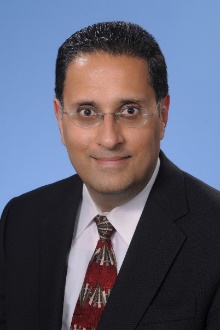 Dr. Singh is Chief of the Health Policy, Quality, and Informatics Program, Center for Innovations in Quality, Effectiveness, and Safety, based at the Michael E. DeBakey VA Medical Center and Baylor College of Medicine, Houston. He leads a portfolio of VA and AHRQ-funded patient safety research in improving the use of health IT and reducing diagnostic errors in health care. His work has informed several national patient safety initiatives and policy reports, including those by the National Academy of Medicine (formerly the IOM), U.S. Department of Health and Human Services, National Quality Forum, American Medical Association, AHRQ, and the World Health Organization. In 2012, he received the AcademyHealth Alice S. Hersh New Investigator Award for high-impact research and in 2014 received the prestigious Presidential Early Career Award for Scientists and Engineers (PECASE) from President Obama for his pioneering work in the field.
Dr. Singh is Chief of the Health Policy, Quality, and Informatics Program, Center for Innovations in Quality, Effectiveness, and Safety, based at the Michael E. DeBakey VA Medical Center and Baylor College of Medicine, Houston. He leads a portfolio of VA and AHRQ-funded patient safety research in improving the use of health IT and reducing diagnostic errors in health care. His work has informed several national patient safety initiatives and policy reports, including those by the National Academy of Medicine (formerly the IOM), U.S. Department of Health and Human Services, National Quality Forum, American Medical Association, AHRQ, and the World Health Organization. In 2012, he received the AcademyHealth Alice S. Hersh New Investigator Award for high-impact research and in 2014 received the prestigious Presidential Early Career Award for Scientists and Engineers (PECASE) from President Obama for his pioneering work in the field.
In addition to co-developing the national VA policy on diagnostic test results communication in 2015, Dr. Hardeep co-chaired the National Quality Forum committee on recommendations for health IT safety measurement and co-developed the "ONC SAFER Guides," which provide national recommendations for safe electronic health record use. In 2014, he was elected as a Fellow of the American College of Medical Informatics for significant and sustained contributions to biomedical informatics. He currently serves on the Federal Clinical Laboratory Improvement Advisory Committee, which advises the CDC, FDA, and CMS, and as an Associate Editor for the journal Diagnosis.



